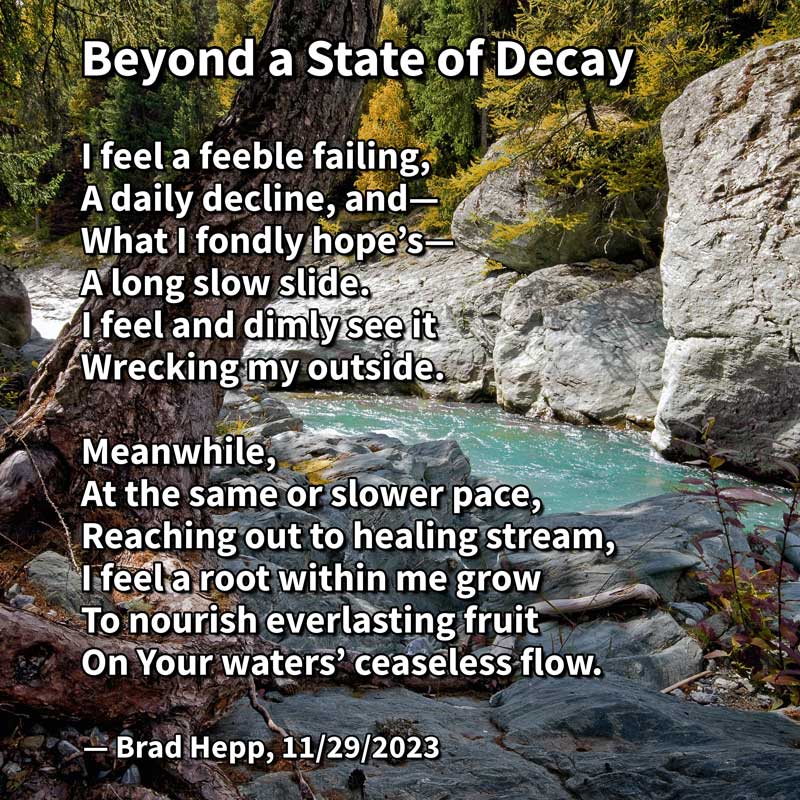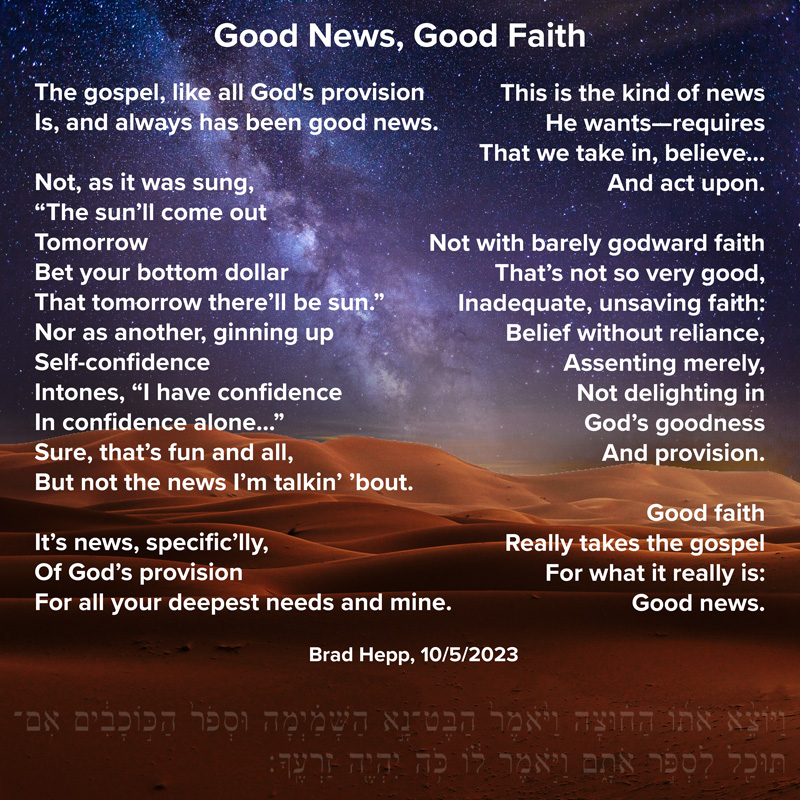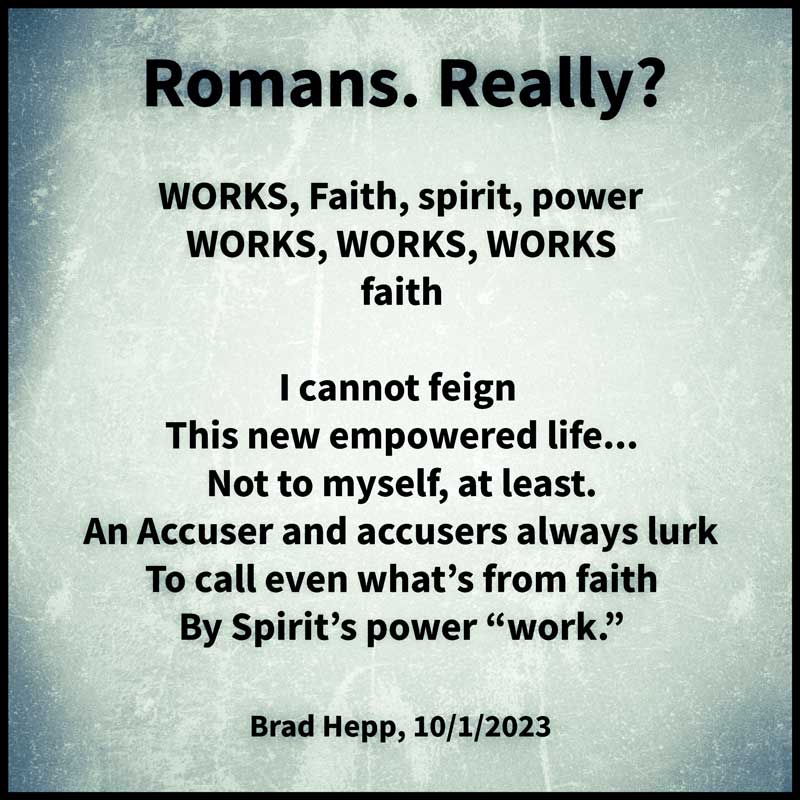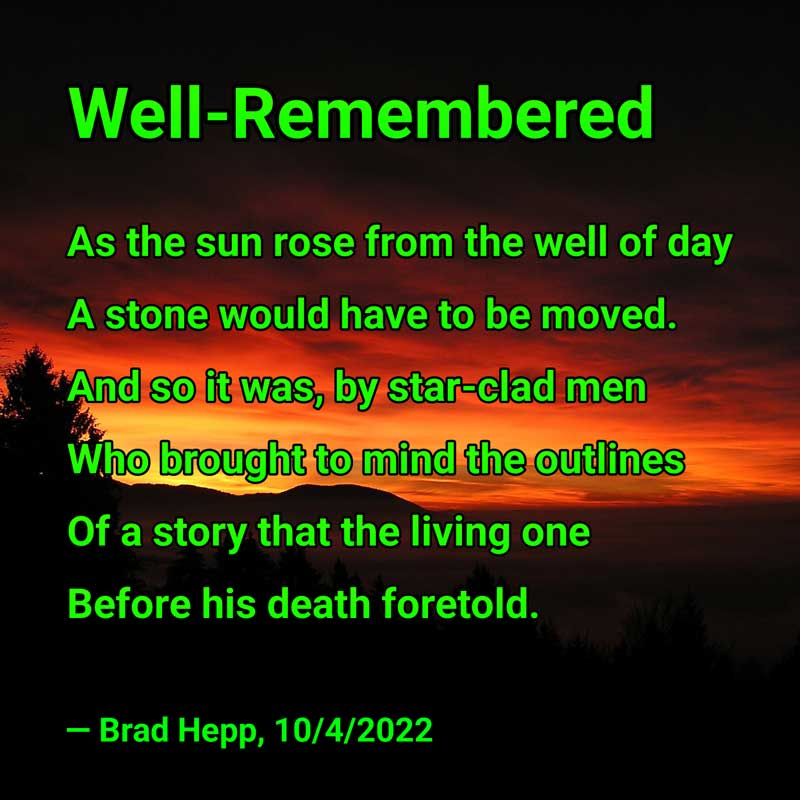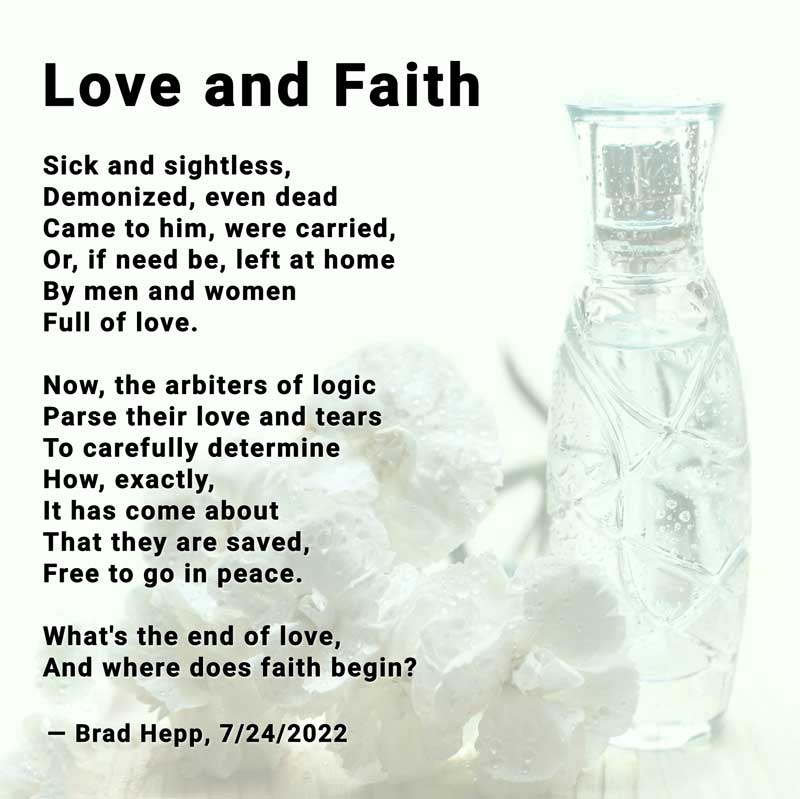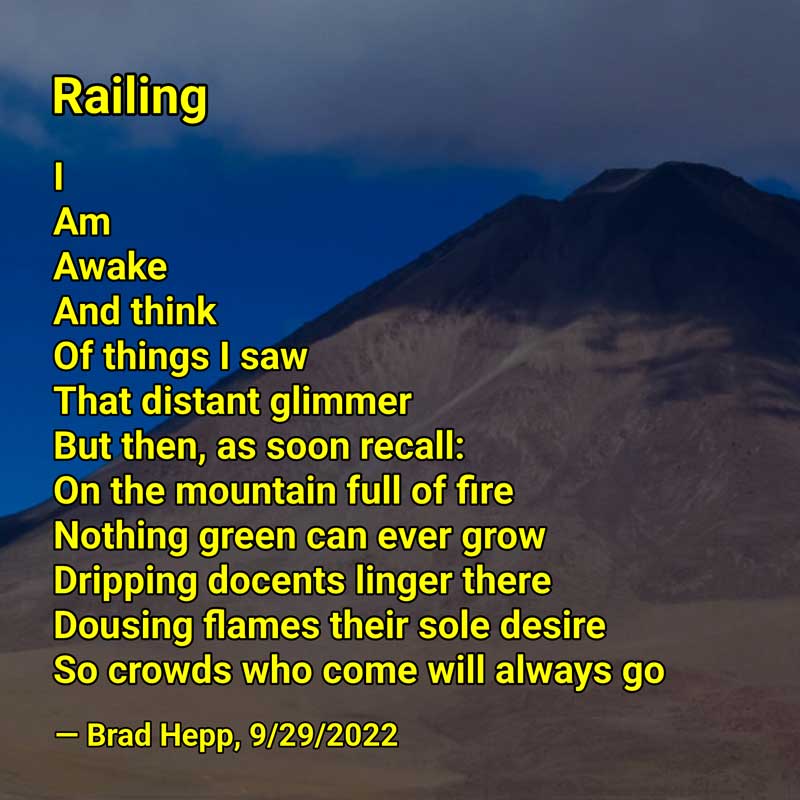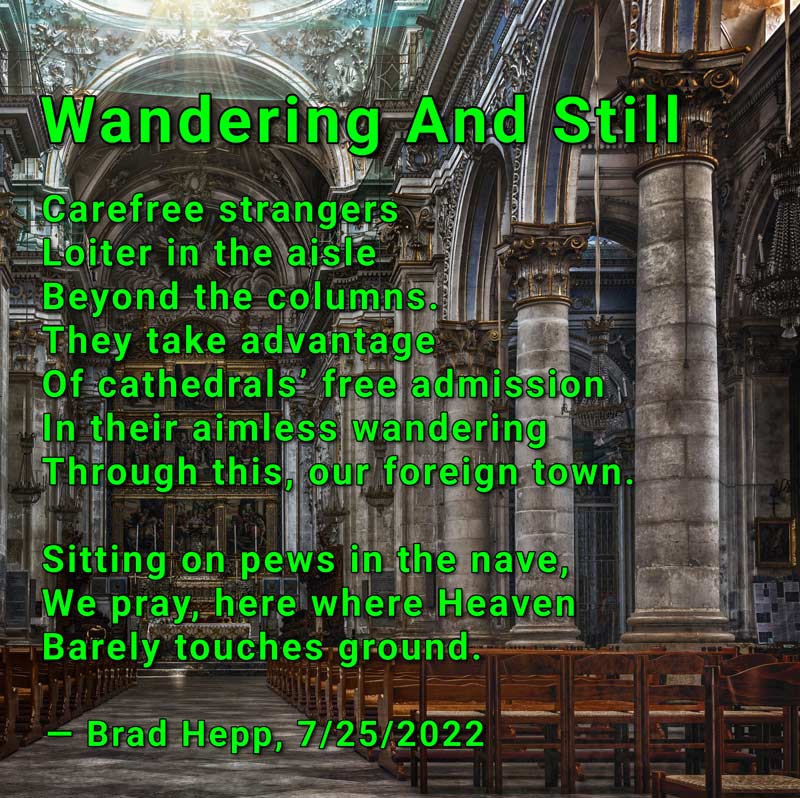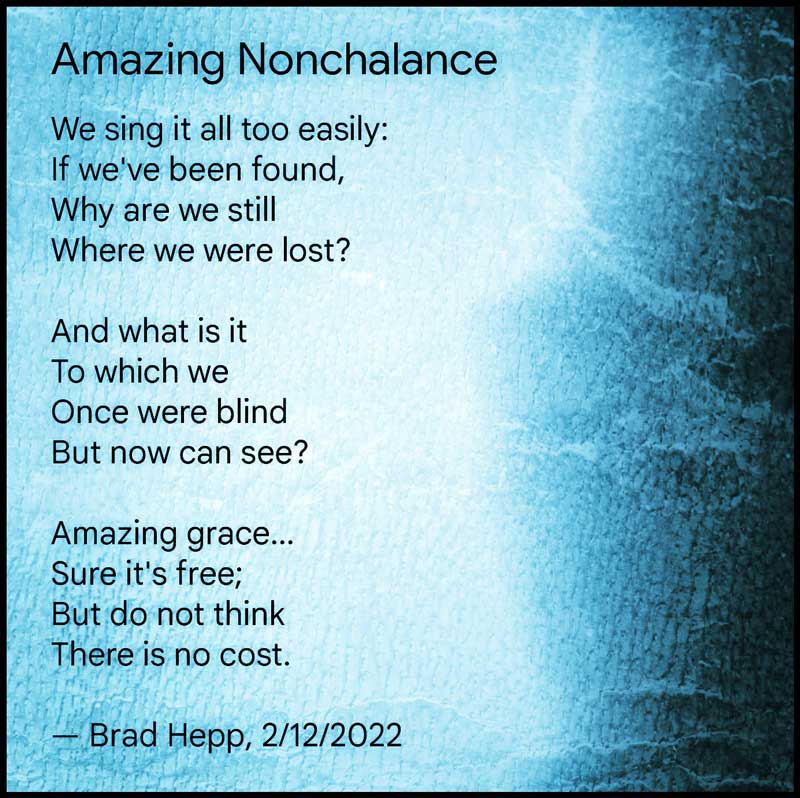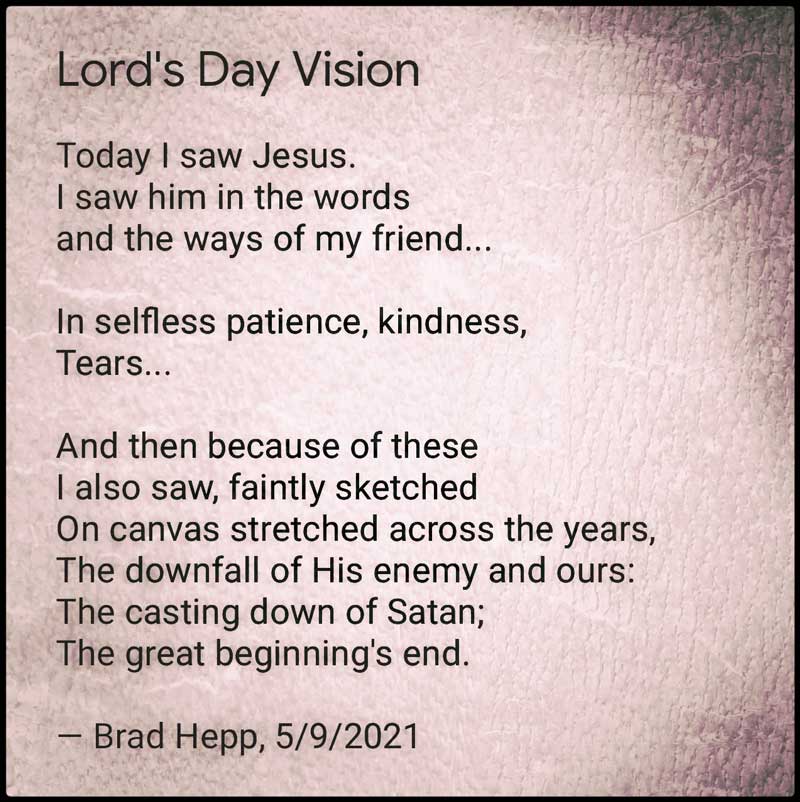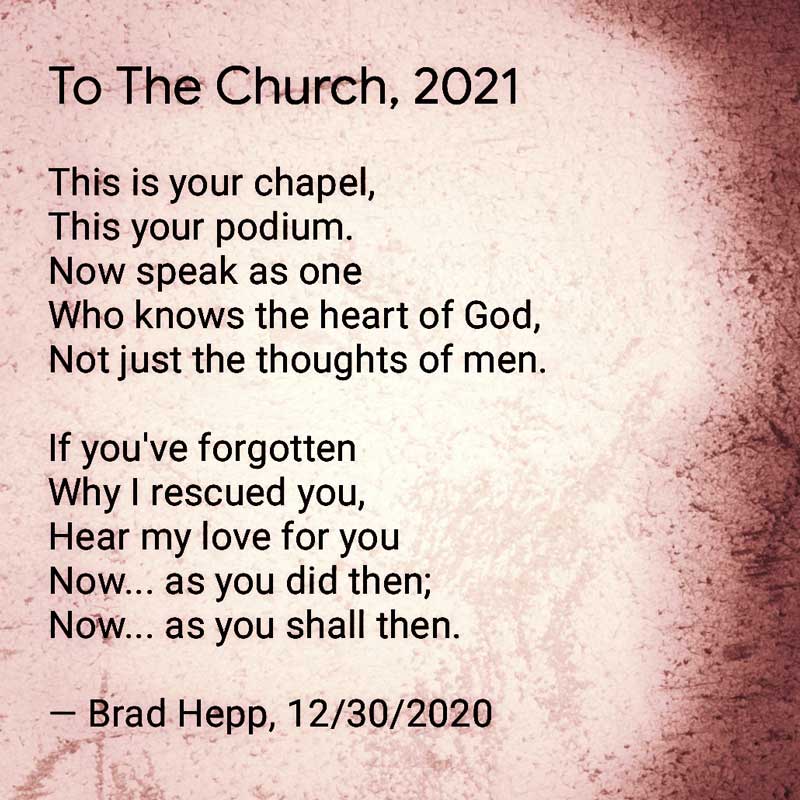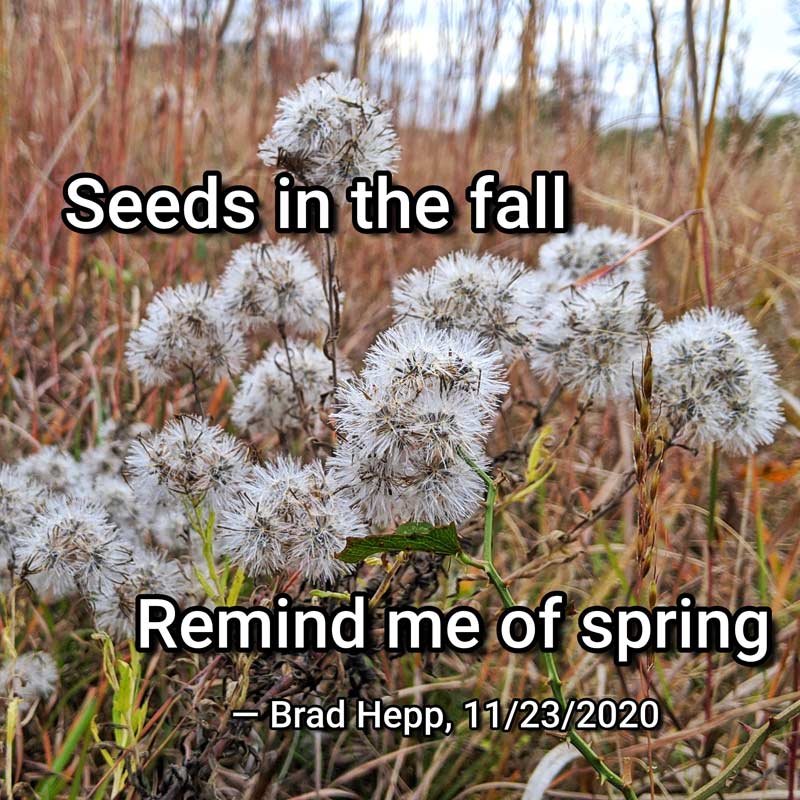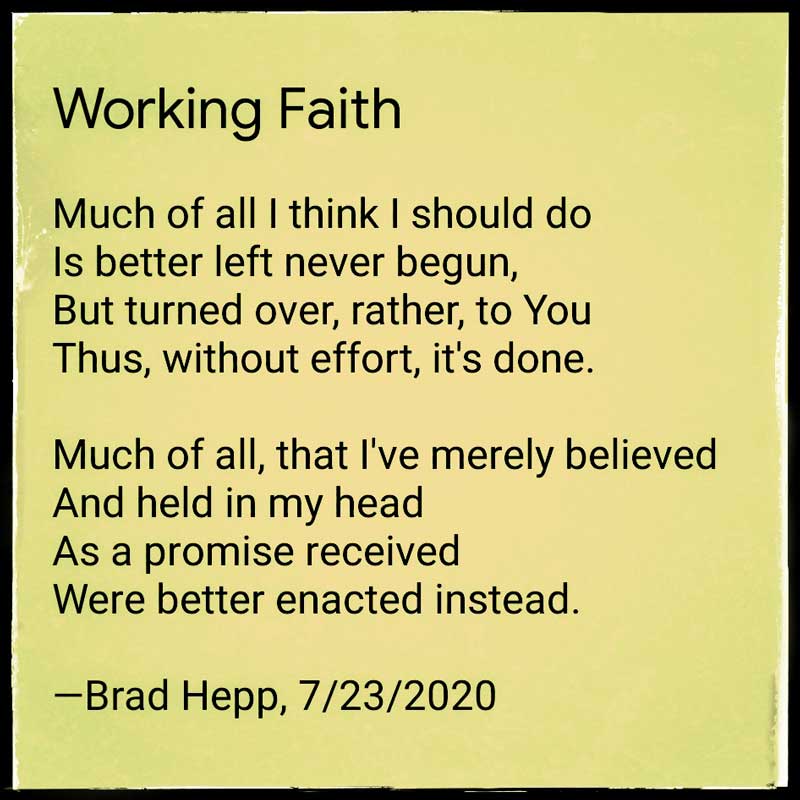(if you are viewing this via email, the website has a recording of this poem and commentary; click the title above)
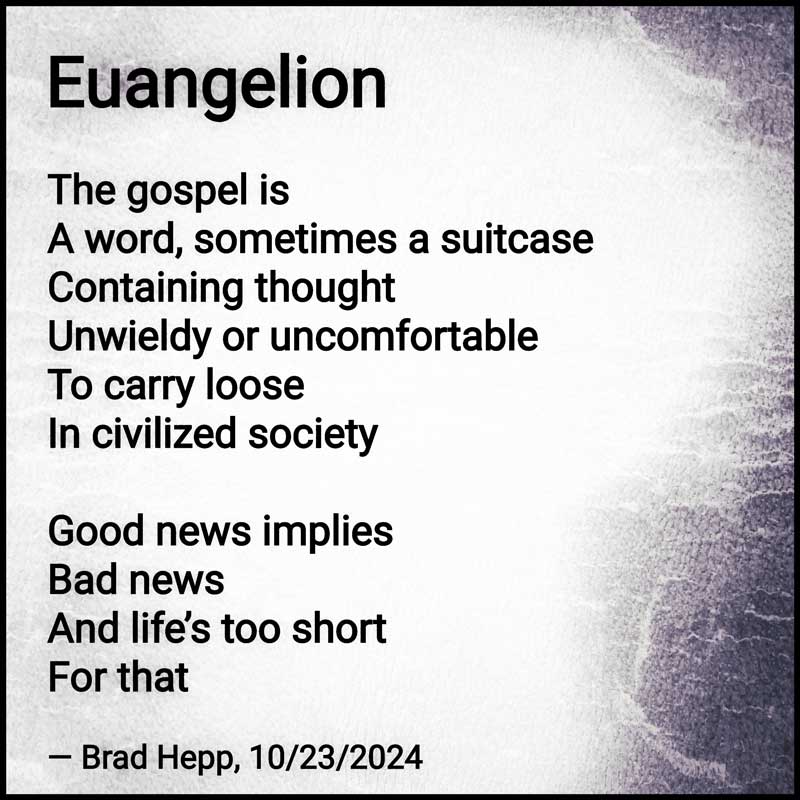
Commentary
First, the occasion for this poem: I’m slowly working through Paul’s Epistle to the Romans, and I thought I should figure out if–and how–Paul actually defines the key word euangelion (usually translated “gospel” or more literally “good news”). He certainly goes a long way toward characterizing the word.
When I was a little boy, my father—ever the seminary professor—had no use for mere parroting. We’d read a passage of Scripture in family devotions, and then Dad would say, “Now put that in your own words.” I have written elsewhere how annoying that was… and how right he was!
Eugene Peterson would probably have done the same thing. He and Dad both knew that real understanding can be lost in overly familiar words.
If you do a search for “gospel” in the helpful (and FREE!) YouVersion app, you’ll find that most English versions choose that word–“gospel”–to translate euangelion (https://www.bible.com/search/bible?query=gospel). But specify Peterson’s “The Message” as the version in your query and you won’t find it used even once. Does that mean that Peterson didn’t value “the gospel”? I’m guessing the very opposite is true: It was because he valued the gospel SO MUCH that Peterson insisted on using his own words. He didn’t want its glory obscured by familiarity.
In this poem, I started out with the concept of words as suitcases of meaning. I began writing, and let the words take me where they would. As is often the case, it got a little dark.
If you ask around for people’s definition of “the gospel,” you’ll find there are different emphases concerning what the “good news” is about. Many will say it’s good news about God’s Kingdom. For some reason, I usually think of the gospel as “good news” about the availability of eternal life in a resurrected body in a restored creation. It’s very good news indeed! But that good news implies bad news, the news that apart from grateful reliance on God (my own words for “faith”), “life’s too short.”
See my closely-related prose poem “Prosaic Parrot.”

